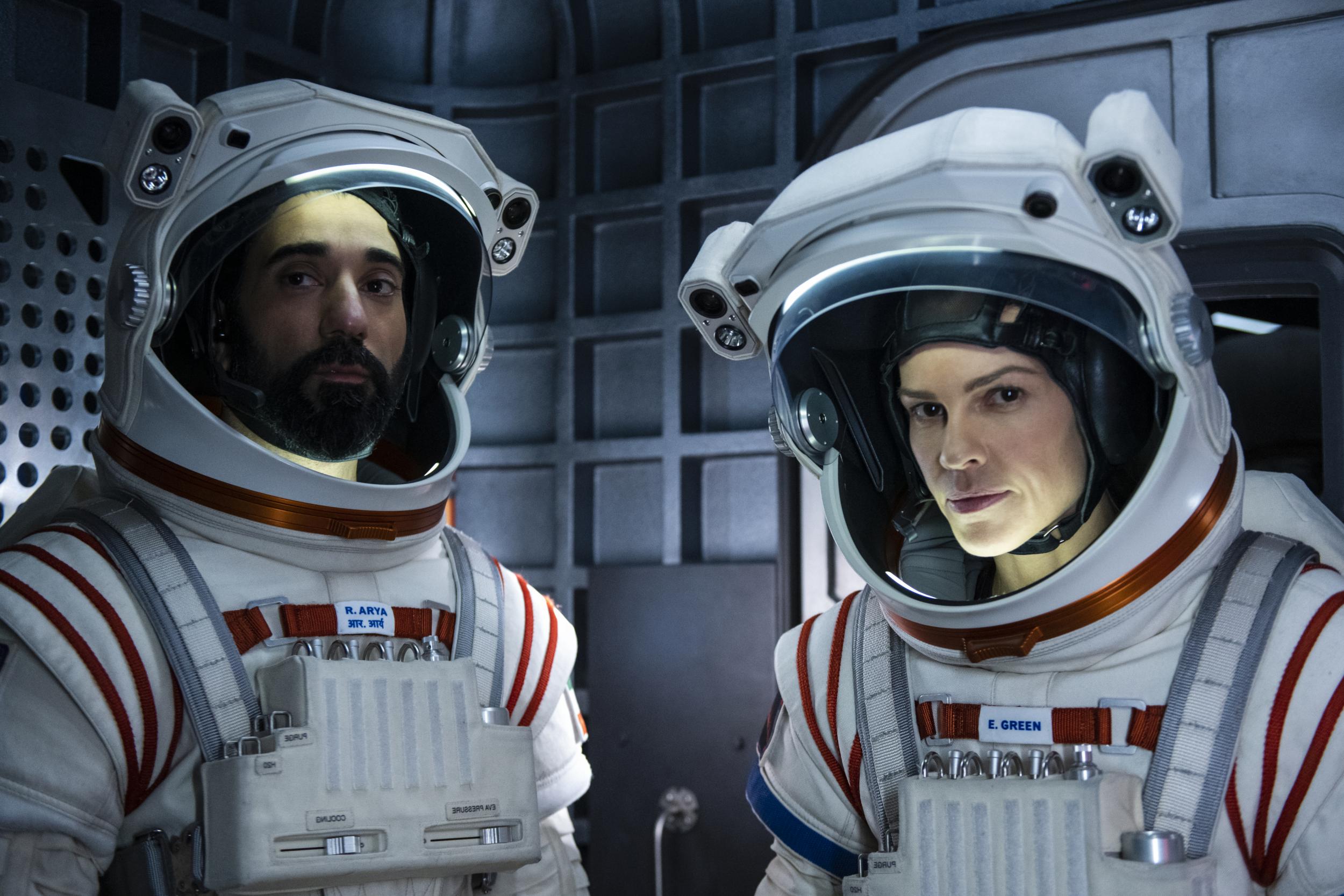Away review: Hilary Swank’s soccer mom in space fails to launch
There has been a micro-revival of ponderous sci-fi in recent years and what they all have in common with ‘Away’ is a nominal fidelity to physics

Your support helps us to tell the story
From reproductive rights to climate change to Big Tech, The Independent is on the ground when the story is developing. Whether it's investigating the financials of Elon Musk's pro-Trump PAC or producing our latest documentary, 'The A Word', which shines a light on the American women fighting for reproductive rights, we know how important it is to parse out the facts from the messaging.
At such a critical moment in US history, we need reporters on the ground. Your donation allows us to keep sending journalists to speak to both sides of the story.
The Independent is trusted by Americans across the entire political spectrum. And unlike many other quality news outlets, we choose not to lock Americans out of our reporting and analysis with paywalls. We believe quality journalism should be available to everyone, paid for by those who can afford it.
Your support makes all the difference.In the normal course of things, the opening scenes of Away (Netflix) would augur certain doom for its protagonist. Emma Green (Hilary Swank) is a Nasa captain tasked with leading the first manned mission to Mars aboard a chunky rocket, The Atlas. Yet she has plenty to keep her at home, with a husband Matt (Josh Charles), himself a rocket scientist who would have been the preferred choice for the mission were it not for a health condition, and a daughter, Alexis (Talitha Bateman), who will miss her terribly.
If Green were a man and this were a film, the early happy families would mean she wasn’t coming back, but Netflix has eight hours to fill. Green is a soccer mom, a Strong Female Lead, a Karen-in-space who would like to talk to the mission manager. (In the first episode, she literally calls from the moon to wake a doctor up in the middle of the night.) You can bet your last Martian dollar she’ll complete the damn mission and make it back for prom.
It won’t be easy. Adding to her domestic anxieties is a crew who don’t trust her, especially not the veteran cosmonaut Misha (Mark Ivanir), the astro mansplainer-in-chief, and the inscrutable Chinese chemist Lu (Vivian Wu). The Indian doctor Ram (Ray Panthaki) and the English-Ghanian botanist Kwesi (Ato Essandoh), who absurdly has never been to space before, are more sympathetic. How will she win over this rag-tag band who, despite allegedly having trained for years for the mission, appear to be near strangers? Stay awake and you’ll find out.
There has been a micro-revival of ponderous sci-fi in recent years. There must be something in the air, probably put there by Elon Musk. There was Nat Geo’s “realistic” Mars, cancelled after two series. In 2018 Sean Penn’s first-trip-to-Mars series, The First, was cancelled by Hulu after one. First and only. A more pulpy French series, Missions, similarly failed to achieve escape velocity. Then last year James Gray somehow combined Brad Pitt, Tommy Lee Jones, rockets and $100m into one of the most tedious films of the year, Ad Astra.
What these productions have in common with Away is a nominal fidelity to physics. Trips to the moon take days, trips to Mars take years. These periods preclude any kind of Aristotlean dramatic time, so everything has to be horribly stretched out. For reasons of plausibility, the people in the ship can’t be seen to murder or shag each other too often, which means too much emotional weight rests on the relationships with the people back on Earth. Home and Away, further each day. Yet directors understandably want to show take-off and landing and cool moon bases, because otherwise why bother set it in space at all?

It’s telling that the most successful new sci-fis in recent years are Amazon Prime’s Picard, which has all the Star Trek IP to trade in, and The Expanse, watchable trash made on a fraction of the budget, at least in its early series, with alien technologies and evil corporations and gunfights. Is it possible that we don’t look to programmes about space for realism? As Away develops, we learn more about the other crew members, who mostly have more interesting stories than Emma’s. Lu emerges as the only competent professional, and probably a better candidate for captain. Swank commits admirably to her role, frankly beyond what she ought to be able to do with the script, but even her shoulders, and the rest of the Atlas’s crew, aren’t broad enough to carry us away.
Join our commenting forum
Join thought-provoking conversations, follow other Independent readers and see their replies
Comments